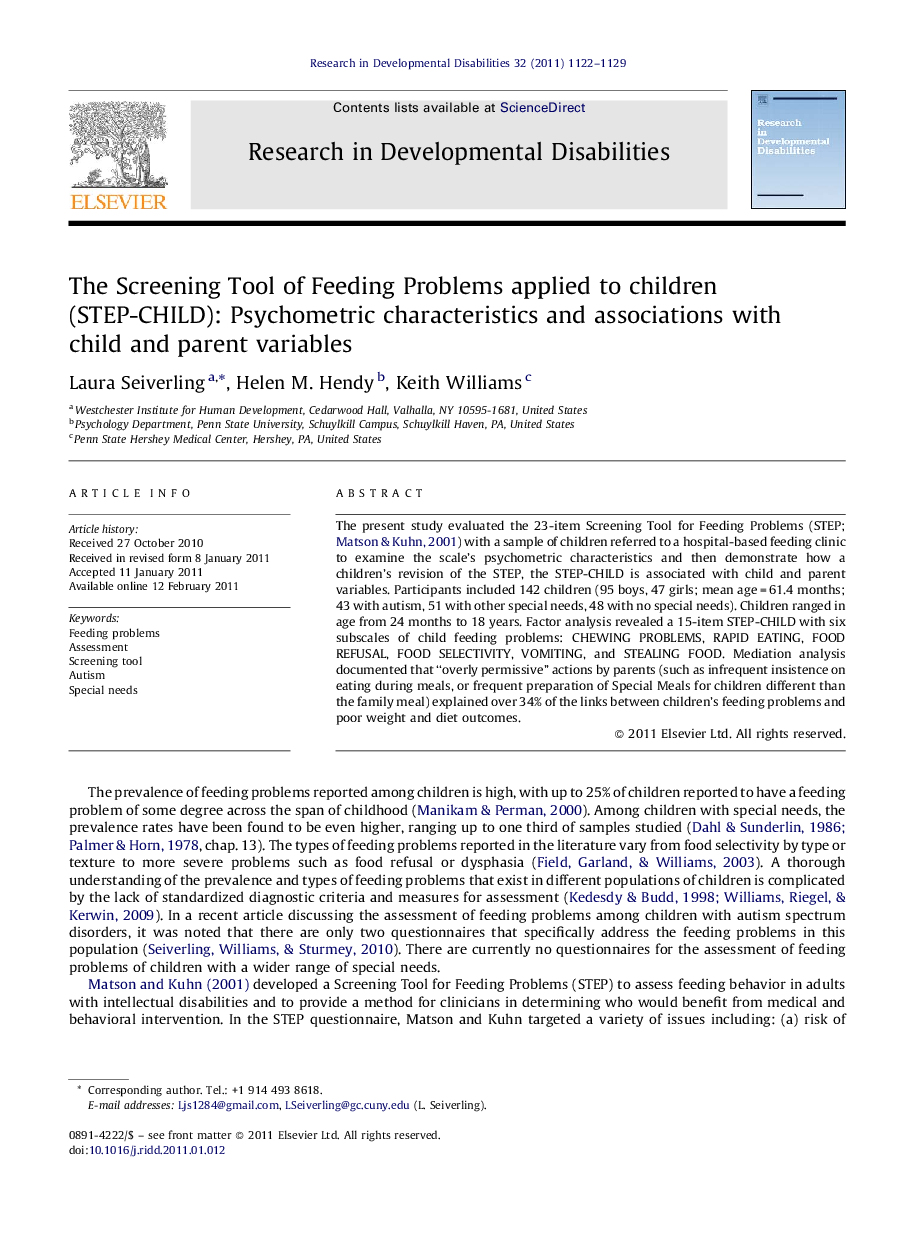| Article ID | Journal | Published Year | Pages | File Type |
|---|---|---|---|---|
| 371904 | Research in Developmental Disabilities | 2011 | 8 Pages |
The present study evaluated the 23-item Screening Tool for Feeding Problems (STEP; Matson & Kuhn, 2001) with a sample of children referred to a hospital-based feeding clinic to examine the scale's psychometric characteristics and then demonstrate how a children's revision of the STEP, the STEP-CHILD is associated with child and parent variables. Participants included 142 children (95 boys, 47 girls; mean age = 61.4 months; 43 with autism, 51 with other special needs, 48 with no special needs). Children ranged in age from 24 months to 18 years. Factor analysis revealed a 15-item STEP-CHILD with six subscales of child feeding problems: CHEWING PROBLEMS, RAPID EATING, FOOD REFUSAL, FOOD SELECTIVITY, VOMITING, and STEALING FOOD. Mediation analysis documented that “overly permissive” actions by parents (such as infrequent insistence on eating during meals, or frequent preparation of Special Meals for children different than the family meal) explained over 34% of the links between children's feeding problems and poor weight and diet outcomes.
Research highlights► Evaluated the 23-item Screening Tool for Feeding Problems with children. ► Demonstrate how a children's revision of the STEP, the STEP-CHILD is associated with child and parent variables. ► Factor analysis revealed a 15-item STEP-CHILD with six subscales of child feeding problems. ► Mediation analysis documented that actions by parents explained over 34% of the links between children's feeding problems and poor weight and diet outcomes.
